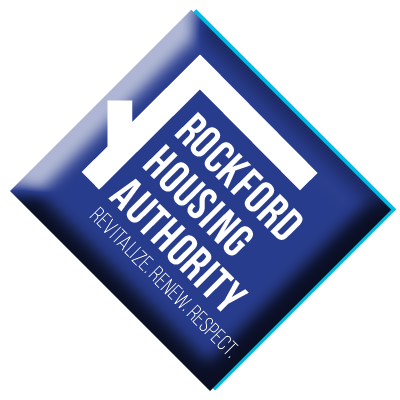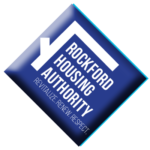- Home
- About Us
- Housing
- Resources
- Contact Us
-
-
-
Address: 223 S. Winnebago Street Rockford, IL 61102
Phone: 815-489-8500
-
-
- Updates
-

Address: 223 S. Winnebago Street Rockford, IL 61102
Phone: 815-489-8500
Address: 223 S. Winnebago Street Rockford, IL 61102
Phone: 815-489-8500


A sense of belonging and a feeling of pride comes with being a homeowner alongside others in the Rockford community. While being a homeowner is not for everyone due to life situations, timing, or other family obligations, homeownership, nonetheless, can provide excellent opportunities for you and your family. Investing and building equity, improving your credit, greater privacy, and control over your living space, are just a few of the outcomes that come with the longer-term stability of owning your own home. Buying a home also means you are also developing your family’s prosperity over time. For our RHA residents, The Housing Choice Voucher (HCV) homeownership program allows you and your family assistance, under the HCV program to use your voucher to buy a home and receive monthly assistance in meeting homeownership expenses. The Homeownership Voucher Home Ownership Program is one of the most exciting developments in tenant-based assistance since the merger of the certificate and voucher programs.
As part of your journey, The RHA Human Services Team in partnership with HOMESTART will provide you with pre-housing assistance counseling. They will present insight into owning a home and what it means to incur more expenses than renting. Homeownership expenses are considered when determining the amount of housing assistance. These include such expenses as your principal and interest payments, mortgage insurance, property taxes, homeowner’s insurance, and monthly utilities. In addition, unlike renting, you will incur routine home maintenance. Over time, you will need to understand that you will face major repairs, such as replacing your home appliances, water heaters, and furnaces.
First steps for you to take
Suppose you intend to have additional freedom and flexibility to make your home your own. These are the essential steps for you to take. You will need to first meet with your HCV Occupancy Specialist and an FSS Specialist at RHA. You will next be attending credit and budget classes to be able to establish, repair, or maintain a minimum credit score of 640. However, some home-buying programs work with a lower score. You will obtain a certification called the ‘First Time Home Buyer’ guidelines as you proceed. For most mortgages, this will provide you with down payment help. You will then be armed with the understanding and knowledge to research and apply for a mortgage provider such as a bank, or credit union.
Once you apply and your loan is approved, your mortgage provider will give you what is called a “Good Faith Estimate.” The documentation will then be presented to your Housing Choice Voucher, Occupancy Specialist at RHA for a tentative Mortgage Assistance Calculation. Your mortgage subsidy is calculated based on your family’s income. If your income decreases, the subsidy increases, and if your income increases, the subsidy decreases accordingly. Therefore, the sum of the contribution and your portion remains the same. As soon as this is completed you can locate a realtor of your choosing to coordinate showings and open house options that interest you. The housing search process is the same for a family with a homeownership voucher, as it is in most respects for any other family looking for a home. While optional independent home inspections are becoming an increasingly common part of the home-buying process, they are mandatory for families purchasing under the Homeownership Voucher Program. The Homeownership Voucher Program also requires that RHA conducts a Housing Quality Standards (HQS) inspection and that any deficiencies be corrected before purchasing your home. Negotiating a price and executing a sales contract is substantially the same for you as a prospective home buyer with a homeownership voucher. Now, as a prospective voucher home buyer, you may consider the same wide range of ownership options as families purchasing homes without voucher assistance. The settlement process is no different for voucher homebuyers than for unassisted homebuyers. By this point, the hard work of preparing you for homeownership, working with your lender to incorporate the HAP payment into the lender’s calculation of your family’s borrowing capacity, and ensuring that the unit meets HQS is done. RHA may continue to be involved with you in the closing or in needed last-minute activities leading up to it to ensure everything is ready for your closing. On your closing or ‘settlement day,’ which is when your bank or savings and loan gets the loan note signed, the seller receives the proceeds of the sale, and yes, you and your family, now receive the title and the keys to the new home! While it may seem complicated, sometimes even nerve-racking and downright confusing, it is worth the trek. The RHA Human Services Department Team will be with you every step of the way.
To become a homeowner, what are the Qualifications needed for RHA Voucher holders?
It is a requirement for you to be a current Housing Choice Voucher program participant in good standing to become a future homeowner. And that you are a first-time homebuyer, meaning none of your family members has owned a home in the past three years. You have maintained employment for 32 hours a week for a minimum of one year, which has provided you with a minimum income of $14,700. The HCV employment requirement does not apply to elderly and disabled families. For disabled families, you, too, must have a monthly federal supplemental security income of $9,252. In addition, you and your family will need a down payment of $1,000 of your own savings and a minimum credit score of 640. Your voucher subsidy will help pay your monthly mortgage payment for up to 10 years or may even be longer for eligible families. Families in the Homeownership Voucher Program may use portability to purchase a home in another Public Housing Authority’s locality only if the new or receiving Authority has a tenant-based Homeownership Voucher Program and is accepting new participants.
Closing thoughts
Homeownership does not necessarily mean that everyone is ready for or interested in homeownership. Homeownership may be the “American Dream” for many families, however, many individuals enjoy renting for the flexibility, while those who opt for buying a home prefer the stability involved.
It is interesting to note a study from the National Association of Realtors Health Benefits of homeowners. Families with a home have higher self-rated health compared to non-homeowners. This study also showed homeowners have higher perceived control over their lives and higher self-esteem and happiness rates than renters. At the end of the day, individuals should examine their given situation and ask whether renting suits their needs. If you find yourself growing increasingly ready to move from the reality of renting, consider the benefits of homeownership instead.
If owning a home is part of your dream through the HCV program, taking the time to familiarize yourself with the benefits of homeownership can help set you up for success as you determine whether, or not, to one day pursue this goal. So, if you are ready to take the first step in your journey toward buying a home and to be able to determine your next move, please reach out to the RHA Human Services Department to see what the future holds for you.
Please note further Resources:
The program is funded by the Department of Housing and Urban Development (HUD) and administered by the Rockford Housing Authority. The HCV homeownership program is available only to families that have been admitted to the HCV program. To participate in the HCV homeownership program, the HCV family must meet specific income and employment requirements for The HCV homeownership program. the Homeownership Voucher Program must meet certain requirements established by HUD as stated in 24 CFR § 982.627. as of 12/16/2022. Title 24 was last amended 11/21/2022
Resource Link Title 24 here: https://www.ecfr.gov/current/title-24/subtitle-B/chapter-IX
The Community Reinvestment Act
All banks, as well as savings and loans and credit unions, are federally regulated institutions, and subject to the laws governing equal opportunity lending and the requirements of the Community Reinvestment Act (CRA). The Homeownership Voucher Program for lenders is a vehicle for meeting their CRA goals.
The Community Reinvestment Act was enacted by Congress in October 1972 to encourage federally insured depository institutions to address the credit needs of their communities, and to prohibit banks from refusing to lend in low- and moderate-income communities, a practice known as redlining.
Regulations issued by the Federal Financial Institutions Examination Council define low- and moderate-income areas as census tracts with median family incomes below 80 percent of the median for the metropolitan area. The CRA followed two other Federal laws aimed at increasing credit flow in low- and
moderate- income communities: The Equal Credit Opportunity Act of 1974, which prohibits discrimination in lending.
What is the RHA Human Services Department?
The RHA Human Services Department is the epicenter of information and programming, which strives to improve the quality of life and client satisfaction for residents living within RHA’s housing communities. We connect our residents to in-house programs & community resources that can assist in several areas. We believe with diligent work, dedicated counseling, and a commitment to obtaining homeownership, for our residents, a vast majority of our families can achieve and will be able to qualify for a mortgage loan if they so choose.
PRE-ASSISTANCE HOUSING COUNSELING
For more Information Contact:
Family Self-Sufficiency Specialist
Mr. Elias Soria
Office Phone (815) 489-8579
Cell Phone (815) 378-3686
esoria@rockfordha.org

To continue to create strategic partnerships with community stakeholders, design a diverse housing portfolio, leverage social service programming to unite and ensure residents are provided with safe and nurturing environments that lead to self-sufficiency, responsibility, and individual empowerment.
This Earth Day, let's unite for a brighter future!
Today, we're reminded of the importance of our planet and the role each of us plays in protecting it.
View the RHA Earth Day 2024 Blog here:
https://rockfordha.org/earth-day-2024/
Effective today, Monday, April 22, 2024, the current RHA Low-Income Public Housing (LIPH) Family Waiting List will open until further notice. Pre-applications can be completed online at https://www.rockfordhousingauthority.com/ and are available at 223 S. Winnebago Street Rockford, IL 61102.
#RHA
Let's come together to celebrate Diversity Month by acknowledging the beauty found in our distinct backgrounds, viewpoints, and identities. #RHA #MovingForwardTogether

Within 5 years the RHA will re-establish itself as high performing agency that is a leader in housing and sustainable communities by developing additional, non-HUD revenue streams, increasing our asset base and offering state of the art resident initiatives.